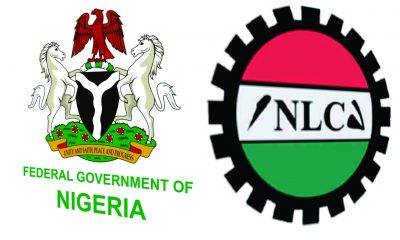Health
85% Of Psychiatric Patients Are Youth –Psychiatrist

The President of the Association of Psychiatrists in Nigeria (APN), Dr Taiwo Sheikh, says that youth account for up to 85 per cent of psychiatric cases in Nigeria, due to drug and substance abuse.
Sheikh made the disclosure in an interview with newsmen in Abuja, yesterday.
According to him, the high figure poses a serious threat to the future of Nigeria.
He said that from the association’s investigation, causes of mental disorder among youths were beyond drug abuse as the youths y now inhaled lizard faeces.
“They also put their noses in pit toilets and smoke match sticks to get high.”
Sheikh said that most of the youth affected by the lifestyle were between the ages of 18 and 38, the most productive segment of the population.
He called on the Federal Government and relevant agencies not to treat the problem lightly as investigations had showed that the lifestyle was common among the rich, poor, male and female.
“People always think that this is a problem common among the poor and jobless but studies show that even the working class is not left out.
“Current studies carried out in the North-West shows that women are not left out in substance use disorders either. We found that not only young or single ladies are involved but housewives and mother.
“It is sad that this category of people who are supposed to be parents looking after their children go around misusing drugs like cough mixtures and pain-killers.
“Our young men are sniffing lizard faeces, they are putting their noses into pit toilets to inhale things from there and they are also smoking match sticks.
“It is now beyond the abuse of drugs sold in pharmacies.
“Before now, when you talk of substance use disorder your mind goes to use and abuse of substances like heroine, Indian hemp or cocaine but this trend has changed.”
He reiterated the need to intensify efforts to educate citizens on the dangers and health risks of engaging in substance abuse.
The APN chief said that engaging in the campaign was crucial as getting addicted to drugs and substances was quite easy.
According to him, the moment you use these drugs once or twice, you get hooked as the substances are addictive.
Sheikh advised the general public to always seek medical advice when not in a state of good health, rather than resorting to self-medication.
He noted that self-medication could trigger a lifestyle of drug abuse.
Health
‘How Micro RNA Research Won Nobel Prize’
Two United States scientists who unraveled the human micro RNA have won the Nobel Prize in Physiology or Medicine 2024.
Victor Ambros and Gary Ruvkun won the coveted prize for their work on microRNA as their discoveries help explain how complex life emerged on earth and how the human body is made up of a wide variety of different tissues.
MicroRNAs influence how genes – the instructions for life – are controlled inside organisms, including humans.
Every cell in the human body contains the same raw genetic information, locked in our DNA.
However, despite starting with the identical genetic information, the cells of the human body are wildly different in form and function.
The electrical impulses of nerve cells are distinct from the rhythmic beating of heart cells. The metabolic powerhouse that is a liver cell is distinct to a kidney cell, which filters urea out of the blood.
The light-sensing abilities of cells in the retina are different in skillset to white blood cells that produce antibodies to fight infection.
So much variety can arise from the same starting material because of gene expression.
The US scientists were the first to discover microRNAs and how they exerted control on how genes are expressed differently in different tissues.
The medicine and physiology prize winners are selected by the Nobel Assembly of Sweden’s Karolinska Institute.
They said: “Their groundbreaking discovery revealed a completely new principle of gene regulation that turned out to be essential for multicellular organisms, including humans.
“It is now known that the human genome codes for over 1,000 microRNAs.”
Health
WHO Begins Regulation On Antibiotic Waste
The World Health Organisation (WHO) has begun acting to curb effects of antibiotic pollution.
The new guidance on wastewater and solid waste management for antibiotic manufacturing sheds light on this important but neglected challenge ahead of the United Nations General Assembly (UNGA) High-Level Meeting on antimicrobial resistance (AMR) taking place on 26 September 2024.
The emergence and spread of AMR caused by antibiotic pollution could undermine the effectiveness of antibiotics globally, including the medicines produced at the manufacturing sites responsible for the pollution.
Despite high antibiotic pollution levels being widely documented, the issue is largely unregulated and quality assurance criteria typically do not address environmental emissions. In addition, once distributed, there is a lack of information provided to consumers on how to dispose of antibiotics when they are not used, for example, when they expire or when a course is finished but there is still antibiotic left over.
“Pharmaceutical waste from antibiotic manufacturing can facilitate the emergence of new drug-resistant bacteria, which can spread globally and threaten our health. Controlling pollution from antibiotic production contributes to keeping these life-saving medicines effective for everyone,” said Dr Yukiko Nakatani, WHO Assistant Director-General for AMR ad interim.
Globally, there is a lack of accessible information on the environmental damage caused by manufacturing of medicines.
“The guidance provides an independent and impartial scientific basis for regulators, procurers, inspectors, and industry themselves to include robust antibiotic pollution control in their standards,” said Dr Maria Neira, Director, Department of Environment, Climate Change and Health, WHO. “Critically, the strong focus on transparency will equip buyers, investors and the general public to make decisions that account for manufacturers’ efforts to control antibiotic pollution.”
Health
Kebbi Harmonises Doctors’ Salaries To Curb Brain Drain
In a concerted effort to curb brain drain, the Kebbi State Government has harmonised medical doctors’ salaries to be at par with their colleagues in the federal government’s tertiary health facilities.
Kebbi State Commissioner for Health, Musa Inusa-Isma’il, disclosed this at the handing over of ambulances to the state-owned health facilities at the Ministry of Health in Birnin Kebbi yesterday.
Inusa Isma’il, according to a statement by Ahmed Idris, the Chief Press Secretary to the governor, said the essence of the harmonisation was to retain the existing medical doctors and attract more to the services of the state.
According to him, the doctors across the state had already started enjoying the new salaries from August 2024.
He said the release of the vehicles was in fulfilment of Governor Nasir Idris’ promise to uplift health care services in the state.
“His Excellency said I should inform you, the beneficiaries of this gesture, that the vehicle should be strictly used for the intended purpose. It should not be used for anything else.
“If there is no referral case, each of the vehicles must be parked at the hospital by 6 pm. The governor said you should warn your drivers against reckless driving as well as violating the instructions.
“We should also do everything possible to reciprocate the gesture by working according to the terms and conditions attached,” he advised.
The benefiting health facilities included Sir Yahaya Memorial Hospital, Birnin Kebbi; State Teaching Hospital, Kalgo; General Hospital, Argungu; General Hospital, Yauri; General Hospital, Zuru; and General Hospital, Bunza.
In his speech, the permanent secretary of the ministry, Dr Shehu Koko, recalled that the ambulances were handed over to the ministry last Friday by the governor for the onward handover to the benefiting hospitals.
He observed that the ambulances would go a long way in improving the referral system in the state, adding that delays in reaching the secondary and tertiary facilities would be eliminated.
The permanent secretary attributed the high rate of maternal mortality in the country to delays in getting to the health facilities for proper medical care.
“We believe with the provision of these ambulances, part of the gaps we have in our referral system will be addressed, whereby patients who require secondary healthcare could be easily transported to secondary and tertiary health centres, where they can get such help,” he said.
In a goodwill message, Commissioner for Information and Culture Alhaji Yakubu Ahmed expressed gratitude to the governor for the support he has given to the ministry to excel.
While advising the beneficiaries to use the vehicles judiciously, the commissioner advised that services and maintenance of the vehicles must be prompt to derive the maximum benefits from the vehicles.
The commissioner also highlighted some achievements recorded by the government in the last year, including beautification of the state capital, completion of a multimillion-naira ultramodern state secretariat, road construction, construction and renovation of classrooms and upgrading of some health facilities, among others.
-
Business5 days ago
NESGAS, Cakasa Sign Deal For 50,000MT LPG Storage Facility In Rivers
-
Opinion5 days ago
Leveraging On Manpower Dev: Tai LG Model
-

 Politics5 days ago
Politics5 days agoN’Assembly Adjusts 2025 Budget, Raises Recurrent Expenditure
-
Business5 days ago
Total Energies Urges Right Policies, Environment To Attract Foreign Investors
-
Opinion5 days ago
My Thought On St Valentine’s Day
-
Politics5 days ago
Osun LG Crisis: IGP Moves To Restore Normalcy
-
Business5 days ago
Partnerships, Capacity Building, Panacea For Local Content Boost – Shell
-

 Editorial5 days ago
Editorial5 days agoSolid Minerals, Cesspit Of Corruption

